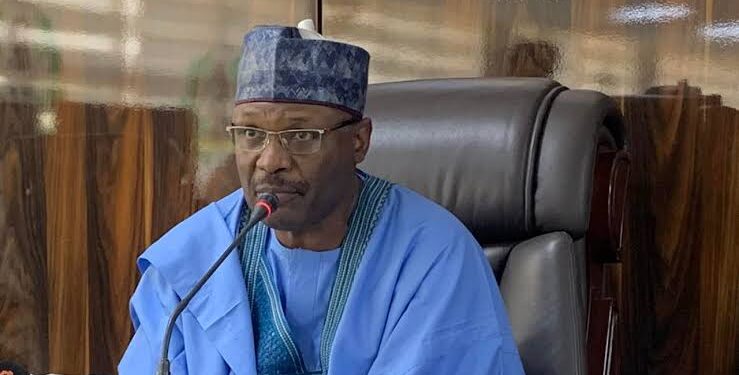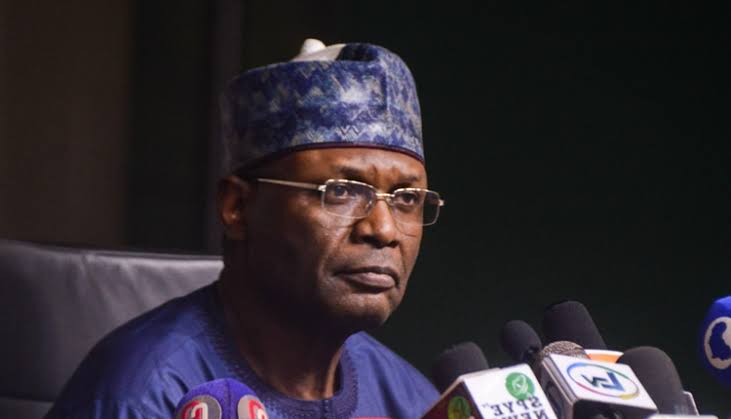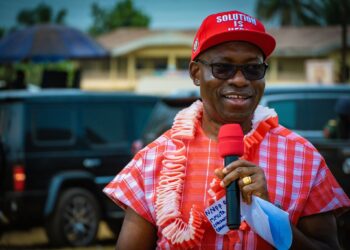Civil society group Yiaga Africa has torn into the so-called results of the 2024 Edo State governorship election, branding the entire process a failure of integrity. In their sharp, no-nonsense statement released Monday, signed by Dr. Aisha Abdullahi, Chair of the 2024 Edo Election Mission, and the group’s Executive Director, Samson Itodo, according to them, the election was tainted. Why? Because the transparency of the results collation was virtually non-existent, leading to blatant manipulation.
What They Are saying
Now, Yiaga Africa didn’t say everything was bad. They begrudgingly admitted that accreditation, voting, counting, and recording at polling units mostly followed procedures. However, that’s where the praise ends. The collation process? A hot mess, thanks to some shady INEC officials who, according to Yiaga, were in bed with external actors to cook the books. This manipulation didn’t just stain the process, it absolutely ruined any hope for a credible outcome.
Yiaga Africa deployed their Process and Results Verification for Transparency (PRVT) methodology for observing the election. They sent out 300 stationary observers and 25 roving ones to polling units across the state, covering all 18 local government areas. So, their conclusions? They aren’t guesswork. They’ve got the data.
It added, “Yiaga Africa’s estimates are based on official results announced at the polling unit, from a representative random sample of polling units. As highlighted in our pre-election report, Yiaga Africa will amongst other factors consider the quality of election day processes in assessing whether the 2024 Edo governorship satisfies the electoral integrity test. In this regard, Yiaga Africa considered the integrity of accreditation, voting, counting, and collation of results.
“INEC consistently applied its guidelines in managing the accreditation and voting process in a significant number of polling units. Despite some isolated incidents, Post Election Statement on the September 2024 Edo State Governorship Electionof inadequate election materials, the BVAS machines functioned optimally, and all voters in the queue by 2:30pm were allowed to vote, despite the late opening of polls. The polling officials uploaded polling unit results on the IReV in a timely manner, making it possible for citizens to access polling unit level results.
“However, the incidents of results manipulation and disruptions during ward and local government collation in Ikpoba/Okha, Etsako West, Egor and Oredo LGAs, including intimidation of INEC officials, observers and party agents and the collation of results contrary to the provisions of the Electoral Act and INEC guidelines, severely undermine the credibility of the election results.”
Why It Matters
Still, despite Yiaga’s glaring red flags, INEC went ahead and declared Monday Okpebholo of the APC the winner, with a supposed 291,667 votes. His main challenger, Asue Ighodalo of the PDP, scraped together 247,274 votes, while Labour Party’s Olumide Akpata managed a distant third with a measly 22,763 votes. INEC did what it does best, announce a winner, but can we really trust these numbers?
Yiaga Africa didn’t think so. They reported widespread manipulation and disruption during collation in hotspots like Ikpoba/Okha, Etsako West, Egor, and Oredo. There were even reports of intimidation against INEC officials, observers, and party agents. The manipulation was so obvious it practically screamed, “This election is a sham!”
Yiaga Africa’s estimates, based on polling unit results, show that the official figures don’t add up. They were quick to point out that in places like Oredo, Egor, and Esan West, the numbers announced by INEC were way off their PRVT estimates. What does that tell you? Well, it’s not rocket science—it means the results were tampered with. The whole process reeks of manipulation, and Yiaga Africa isn’t shy about calling out the “biased INEC officials” and “interfering security personnel” who, they claim, played starring roles in this circus.
The group was also scathing about the disruptions in key areas, which they argue provided the perfect cover for election manipulation. And yet, somehow, INEC wants us to believe their results are legitimate. Sure, INEC’s turnout and rejected ballot figures aligned with Yiaga Africa’s estimates. But when the manipulation starts at the collation level, who cares about turnout numbers?
Yiaga Africa said that INEC’s official turnout was 22.4%, which falls in line with their own projection of 22.5%. Rejected ballots also came in close, with INEC reporting 2.7%, well within Yiaga Africa’s estimated range of 2.2% to 3.2%.
Bottom Line
At the end of the day, Yiaga Africa’s final verdict is harsh, the election may have passed on the surface, but underneath, the results were manipulated in broad daylight. They pointed to the glaring discrepancies between INEC’s figures and their PRVT estimates as proof that something shady went down during the collation process. Their blunt message?
The integrity of the 2024 Edo governorship election is hanging by a thread.


















